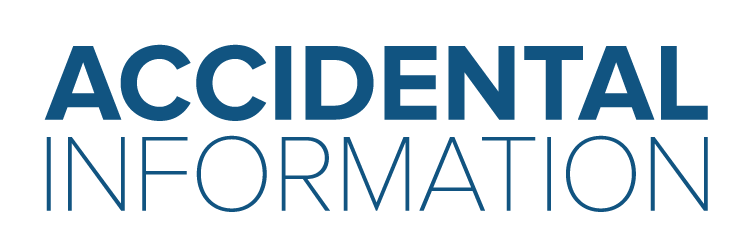
Embrace Your Mistakes to Create a Better You
Almost everyone has something they’d like to change about their life – and yet so few of us actually take the plunge.
Why is that? There can be multiple reasons. One of the more obvious reasons, we’re afraid to make mistakes.
Though we love to dream about changing careers or starting an amazing new hobby, our mind is also plagued with plenty of nightmares about all the things that could go wrong. What if we’re no good at it? What if we try it – and then realize we don’t even like it as much as we thought? What if, what if, what if?
We’re not going to lie to you, those and probably more what if’s are definitely possibilities. But here’s the thing: that’s all part of the journey. We all think these or other doubts at some point.
And the sooner you accept it, the better. But we get it, that’s easier said, than done.
To get you started, we have three specific ways of using mistakes to your advantage.
Things We Don’t Like, Teach Us About Ourselves
In our amazing convo with Melanie Celis, she told us all about how she turned a dull career as a property manager into one she’s totally passionate about, as a hairstylist and salon owner. But surprisingly, she didn’t regret the time she spent in her former profession.
That’s because she realized the path she took wasn’t making her happy. See, she knew early on in life about the things that interested her. But advice she received and in combination of not believing in her instinct put her on a different path. The gift of being in a career she didn’t love, gave her perspective to look back to the things she did love in her past. And she even learned a couple new skills along the way that helped her stepped out on her own.
When we’re on our journey, it’s okay to take a few wrong turns along the way. In fact, it’s expected.
Because the benefit is, these “wrong” turns are actually more like detours that open us up to new avenues that we may not have found otherwise.
Vanessa Stump shared a similar story. She knew she wanted to work in photography. But she was working in a 9 to 5 cubicle world job, and it definitely wasn’t a life she imagined for herself. Making a change, she focused on photography. But when she started taking fashion photos, she quickly found out it wasn’t for her. But no loss, that opportunity connected her to food photography. She’s now making a living as a professional photographer, specializing in food photography.
She was just barely off-target and managed to correct course to find that perfect fit. And this detour was the formula to discover her right fit.
As both ladies showed, it’s not about getting a bullseye on the first shot. It’s about taking the shot, registering that miss, and then shooting again.
The gift of being in a career she didn’t love, gave her perspective to look back to the things she did love in her past.
Why We Should Welcome “Mistakes”
In addition to learning what we don’t and re-positioning our path, there are additional key reasons to make mistakes – and can actually work out for the best.
Adapting through experience
Sometimes we try things that aren’t a completely bad fit… they’re just a little off. Maybe you really enjoy like 50 to 75% of what you’re doing, but you really don’t care for the rest. Without trying it first and gaining the experience, you would never know the details of what makes up the thing you’re aiming toward. Experience gives you a new perspective. Suddenly you realize there are granular details of the job you can’t stand.
By keeping the good stuff and tossing the bad, we eventually end up with something that’s 100% perfect – well, maybe 99%. Not every part of everything you do will be perfect. The point, you have the knowledge now, and you can adapt.
Learning new skills
This was something Justin Michael Williams summed up beautifully when he talked about his transition from marketing to music. Those skills you learn in a previous path don’t just disappear, they carry on over to the next step of your journey, whether it directly helps you in your new field or just allows you see things in a new, more experienced way.
And as we keep adding skills, eventually we wind up with a skill set that helps us find and excel in our chosen field.
Pushing our comfort zone
Another thing Justin mentioned was the importance of pushing our comfort zones, and Chris Gaida said something similar when he talked about “shaking things up.” Sometimes just the simple act of doing new things can help us break out of a rut or develop a new perspective on life.
In Justin’s case, it was moving across the country, changing his environment and daily habits. For Chris, it was skydiving. But it can come in all shapes and sizes, from eating lunch somewhere different to trying something that scares you. If it makes you uncomfortable, then try it. And know you’ll probably make mistakes. Remember, that’s good.
Building momentum
Objects in motion tend to stay in motion. That’s why any movement towards your goals – even if it’s not quite the “right” direction – will help you build the momentum that later propels us to where we really want to be.
Tina White talked about how we can focus on the small successes in our life and use them to drive us forward. These small success usually happen between the mistakes we make, and most of the time, we need to make the mistake to see what doesn’t work. We then take that knowledge to gain the small success by doing our activity differently.
Each new thing you try and learn, each new chance you take, makes you a little stronger and wiser.
There’s never going to be a perfect time to start. You just have to go out there and do it.
The Importance of Taking Action
All of this could be basically boiled down to one thing – and that’s the importance of taking action.
As Jerrod Maruyama pointed out, there’s never going to be a perfect time to start. You just have to go out there and do it.
Take chances. Make mistakes. Try new things.
That doesn’t mean you shouldn’t put some thought and planning into it. But no matter how much time you spend plotting out a path, there’s going to come a time when you end up lost in the woods. Oh, and it’ll also be dark, and you won’t be able to see your map. And there’s no toilet paper.
Yes these experiences might seem scary, but in actuality, they teach us the most – both about ourselves and our goals.
It’s called a “journey” for a reason. It’s a process, one where we learn a lot along the way. But it can’t begin until you take that first step. So stop waiting for the perfect opportunity or worrying about mistakes, and get started down that new path today.

